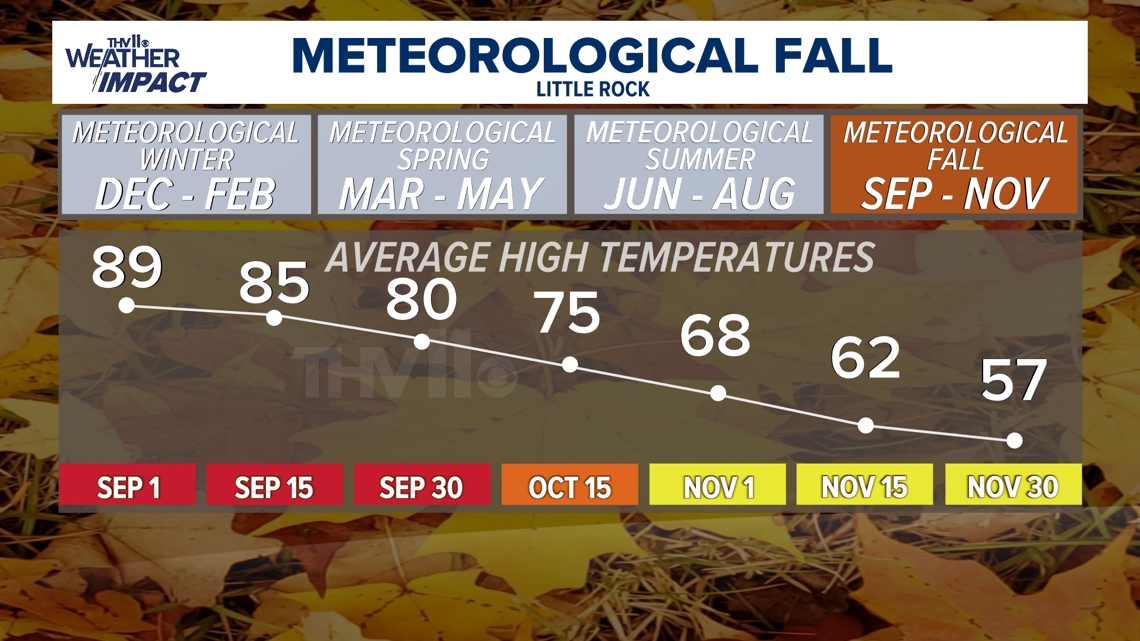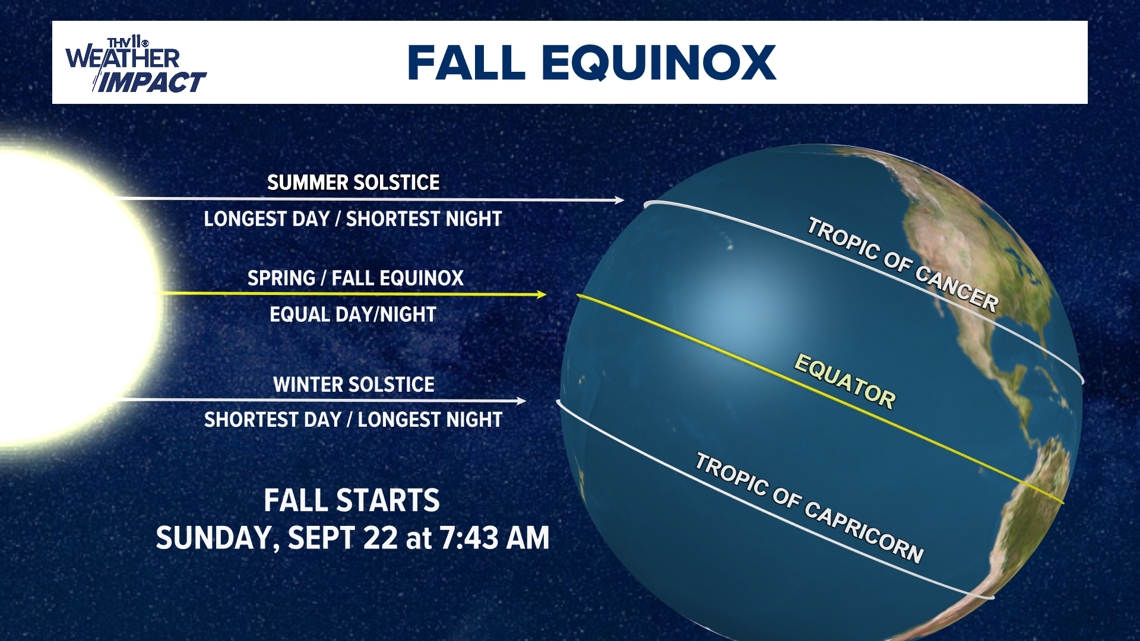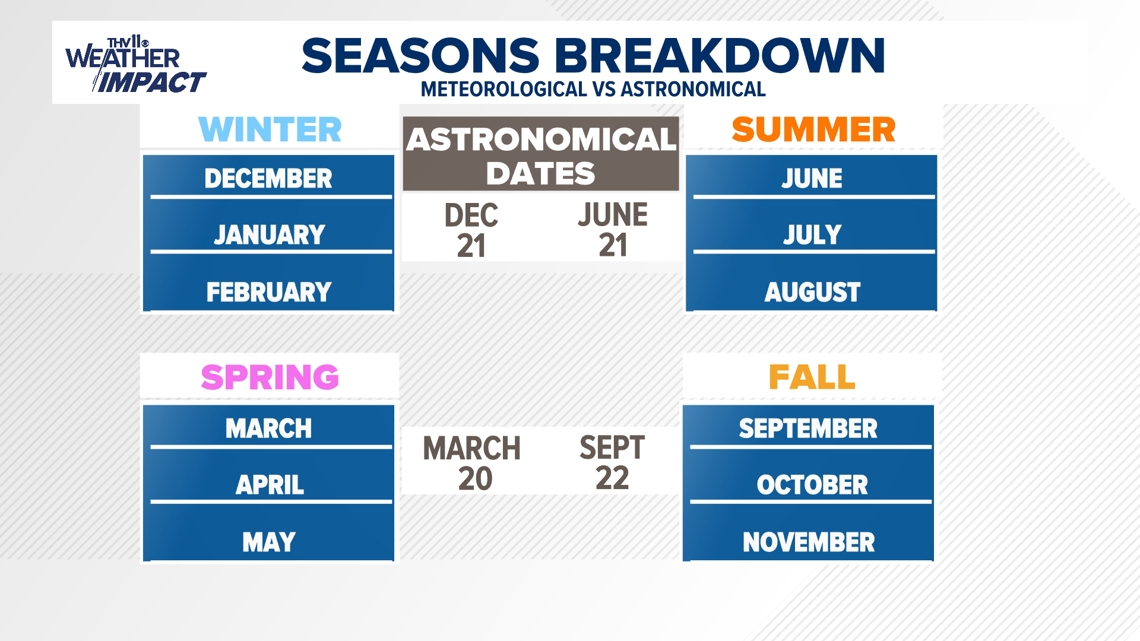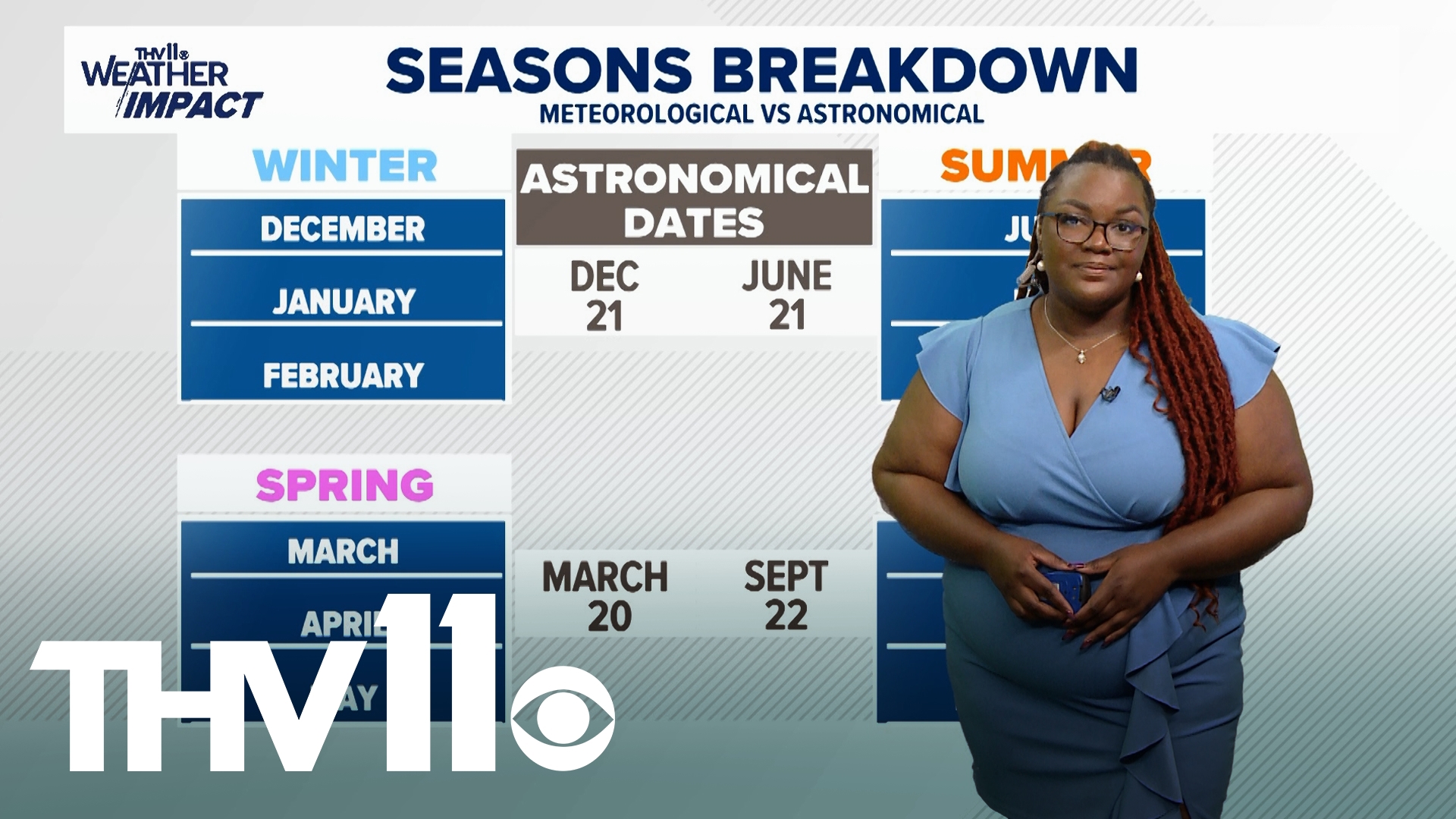LITTLE ROCK, Ark. — This weekend's forecast may have you excited to bring out your favorite fall sweater and Ugg boots, but it's still technically summer in the northern hemisphere.
However, "meteorological fall" kicked off last weekend on Sept. 1. Now, you might wonder, "How is that possible if it's still summer?"
Here's what you need to know about the actual first day of fall.
Meteorological seasons are split evenly across three-month chunks of the year.
They always start on the first of the corresponding month (Sept. 1 for fall, Dec. 1 for winter, March 1 for spring, and June 1 for summer). This is to facilitate climate statistics calculations because the astronomical seasons don't always start on the same day or at the same time.
As previously mentioned, meteorological fall kicked off last weekend.


We consider the true first day of a season to be the day when a solstice or equinox occurs. The fall equinox occurs when the sun's rays shine directly over the earth's equator (this is also the case for the spring equinox).
The summer and winter solstices occur when the sun's rays shine directly over either the Tropic of Cancer or the Tropic of Capricorn (the specific season is determined by which hemisphere you live in).
This year's fall equinox occurs on Sunday, September 22, at 7:43 a.m.


The solstices and equinoxes may fluctuate by a day or two, but they typically occur around the 20-22 of the corresponding month.
There may also be some fluctuation in the time of day when the solstice or equinox occurs. This is because the Earth's orbit around the sun is not a perfect circle, and it doesn't take exactly 365 days (this is also why we have leap years).
Here are the most common dates for each astronomical season.


So, while it technically may still be astronomical summer, we are already starting to feel the fall changes.

